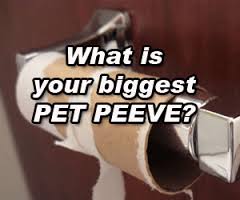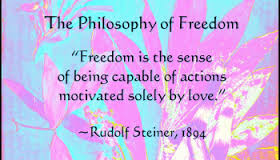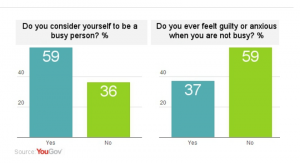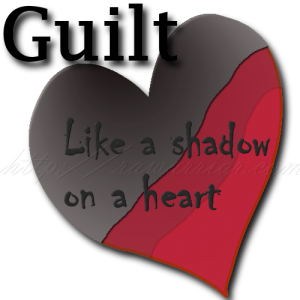March, 2015
Drivers who don’t signal to turn or who speed up when you try to pass, cigarette butts on the ground, people who carve their initials in rocks in state parks, people who cut in line… This is a short list of my pet peeves. Instead of letting these little peeves sneak up and upset me, I decided to work with them and wow! I discovered that these pet peeves can create a BIG change in my inner landscape.
But first, why ever bother to do anything about a personal peeve?
What is a pet peeve? According to Wikipedia: A pet peeve is a minor annoyance that an individual identifies as particularly annoying to himself or herself, to a greater degree than others may find it. Also, it is defined as “a thing that provokes one the most”. (Etymonline.com) The origin of the word came about in 1919, from the 14th-century word peevish, meaning “ornery or ill-tempered”.
So really, anything that provokes us to be ornery or ill-tempered has the potential to reflect on our own inner emotional landscape.
Each time we get riled up, there is a cascade of physiological reactions: our blood pressure can go up, our heart rate accelerates, and we get a dose of cortisol, the stress hormone, racing through our entire system. And, we are usually angry, annoyed and provoked about “them” doing something to “us”. And if you’ve read my HeartMath blog articles, you know that the heart signal that emanates from within, sends BIG signals to all of those around us, that translate to “stay away from this person! they are mad!” http://sacredjourneyoftheheart.com/blog/?p=163
Take a minute to write down your top 5 pet peeves before reading on. This is a fun exercise!
Now that you have your list, ask yourself, “What does each peeve really mean about what I am doing? How does it reflect on my actions and reactions?”
For example, when I discover that there’s no more toilet paper on the roll, I am capable of yelling around the house: “Am I the ONLY one who can change a toilet paper roll in this house?!” Even if my kids are not home, I can stomp around and be angry. And depending on when you discover the absence of this crucial element in the bathroom, it can be worse than just an annoyance!
Having fun with this means translating each pet peeve to a more symbolic meaning: (and there are many with the empty toilet paper roll, but I will stick with the less visceral ones…) For example, what are the “clean-up” things in my day to day activities, am I leaving undone, or expecting someone else to do for me? Oh boy! this points right to something going on right now. My PR guru is setting up a new landing page for me and I have yet to get her the two paragraphs of content for it. Somehow, I’ve been hoping she could do this little “dirty work” for me – after all, she knows what I’m trying to do!!
Another interpretation is this: it’s time to get into the crevices and around the floor boards of my home for Spring cleaning. I’d rather have someone else do it for me, but I know it is an important task for me to do myself. Taking care of my beautiful home is an important act of gratitude. Why is it important and useful to do this little exercise?
1) it frees you from petty reactivity and unnecessary physiological stress
2) when you realize that you can actually change your physiological reaction to little stressors, it is much easier to apply the principles to bigger events.
3) You stop reacting like a victim to other people’s “bad actions” and you CHOOSE to shift your behavior and emotions to a more responsible place.
4) You have more fun interacting in the world from a place of levity and light-heartedness instead of anger, judgment and blame.
Before I go through a few more examples, I want to clarify that doing this exercise does not mean that we are condoning littering, bad driving, and selfish behavior. We all have the responsibility to take action when necessary and to be considerate and caring of others. But when I look at my pet peeves from this new perspective, I am able to clearly see the reflection of places I can personally do a better job in living day to day life.
To finish up, here are some potential meanings of the other peeves I’ve listed and questions to ask yourself:
Getting mad a drivers who do no use their turn signals: In what way I am neglecting to indicate my own direction in life- with my work and relationships. Am I giving clear intentions about where I am going? Or am I being clandestine, secretive or at times, just plain clueless?
Being upset by people who speed up when I am trying to pass them on the highway: Am I supporting the people around me and honoring the pace that works best for them? Or am I judging and internally criticizing people who are trying to move forward from a place of stagnation? Is it possible that I am being pushy?
Getting annoyed with people who carve their names in rock in state parks (or anywhere else!): Am I trying hard to leave an “impression” with others? Where am I focused on me, me, me – to the exclusion of others needs and desires? Am I secretly harboring a fear that my life doesn’t matter unless I do something of permanent lasting “value”?
Being upset by people who throw cigarette butts on the ground: Where am I leaving emotional debris? Am I being responsible for my interactions with others, or am I throwing ‘buts..’ around (i.e. getting defensive) when someone points something out to me about how I could do something better.
Getting upset when someone cuts in line: Am I trying to short cut or get ahead others? Am I being considerate and patient? I am cutting someone off while they are talking to me, or allowing myself to be distracted on the phone instead of paying attention?
When you uncover the true meaning of your pet peeves, you are then able to make a commitment to yourself to be more aware, more kind, more caring and basically, more heart-centered.
I’d love to hear your pet peeves and the inner meanings you discover!
Happy Discovery!
Ronna
PS – guess what just happened? (Sorry if I’m getting too personal here but this is too good not to share!) I just discovered an empty toilet paper roll in the bathroom. I had a wonderful, heart-centered laugh!! AND I’m off to write my 2 paragraphs.
Have you ever gotten to the end of the day and thrown yourself on the couch and wondered “What did I do today? How did the day go by so fast?” This is a hallmark statement of an over-busy life. I’ve had a few of those recently. And it was as if the universe had honed in on this issue for me when I received a slew of emails from people that started, “I know how super-busy you are but…. “
This gave me a pause. One that I was over-due in taking! Because I had gotten into a whirlwind of activity, some of it creative, some of it habit-driven multi-tasking and some of it related to an old avoidance pattern.
When I started looking into the issue, I came across this interesting chart:
This poll from yougov.com shows that 59% of people being polled consider themselves to be busy and over 1/3 of the people polled felt guilty or anxious if they were not busy! Uh-oh! When I got honest with myself, I had to admit that I can easily slip into the feeling of “not-enough” if I really slow down! So underneath a lot of busy-ness, can be feelings of unworthiness or the desire for perfectionism. That’s what I’m referring to when I mention an old avoidance pattern.
If we have some vestiges of unworthiness or perfectionism, they will tend to crop their heads up from time to time when we start slipping into busy-ness.
Obviously, keeping busy then becomes a defense pattern to avoid these feelings and being not-busy results in guilt and anxiety! And it’s true, guilt feels like a shadow on the heart- this is not a clear heart at all!
So rather than diving in to change my busy-pattern right away, I took my own advice from my last blog (“When not to change your life…. Now), and just observed myself for a few days. But the more I observed myself in my over-busy-ness, the more I slowed down naturally, remembering to breath more consciously, to pay attention to what I was doing, and to enjoy the little things in life.
I also realized my upbringing with a strong mid-western work ethic had caught up with me again. Don’t get me wrong, having a good work ethic is important but some of us got a big dose of guilt with the message. My grandparents were farmers and spent long days working in the fields. When we wanted to laze about on the weekends, we always got a lecture about some aspect of the value of work, sometimes peppered with words like “good-for-nothing” and “low-down lazy dogs” to describe people who didn’t work hard enough.
Guilt and Fear mixed all together: Snakes in the field:
The summer that I was 13 years old, my parents decided we needed to spend some time working on our grandparent’s farm in Wyoming in order to learn the value of work. So my 15 year old sister and I would get dropped off in the beet fields at 6 am to hoe weeds all morning. This was in the days before cell phones. The only problem was that the beet fields were filled with rattlesnakes because it was such a dry season that year. We finally got out of our weeding job after I nearly sat on a baby rattlesnake next to the irrigation ditch!
We spent the rest of the summer painting outbuildings. It seemed that whatever we did, someone else was always working longer and harder than us, so my sister and I would find ways to goof off while no one was looking! A few times we got caught up and received a dose of “lazy kid” guilt. I’m sure a lot of you have had similar experiences.
The key thing today, is this pattern of guilt for being not-busy will drive periodic times of over busy-ness. The first step then, is bringing it up to consciousness again~
Banish Guilt- Create from a Clear Heart!
This is the way “Creating from a Clear Heart” program works. The first step is being conscious and the rest of the steps flow from here.
The steps of the Clear Heart process are:
C- Conscious – Choosing to bring consciousness to a situation or emotion
L- Light Heartedness – Learning to cultivate and activate a sense of light-heartedness
E- Empowerment – Emancipating old patterns and habits by taking empowered action
A – Appreciation – Acknowledging your appreciation for what is occurring
R- Responsible – Restoring appropriate balance between heart/brain resulting in responsible thoughts, feelings and actions
In the recorded broadcast of the Clear Heart Program, I discussed the 90/10 and 10/90 equation relationship between the heart and the brain. An optimal energy equation is 90% heart/ 10% brain. As I described in the webinar, this equation correlates to our physiology where 90% of the signals through our vagus nerve travel UP from the heart to the brain and only 10% of the signals go DOWN from brain to heart.
Out of stress and over-busy-ness, most of us are operating energetically in the inverse 0r 10% heart and 90% brain.
When we learn how to correct this imbalance, we can easily choose to slow-down our pace and our breathing. We then end up being more present and flowing and capable of amping-up life’s pleasures in all things! And we easily let go of old feelings from the past that related to unworthiness and the drive to perfectionism.
For example, writing this article could be stressful and feel like “work I HAVE to do”. But I am experiencing it as a flowing, easy energy grounded in appreciation and enjoyment.
So in this way, I am not busy, I am present and enjoying what I am doing this very moment. Likewise, with my work with clients, I am not busy when I am present in a session. I am focused on being present and I am appreciating the privilege of connecting with another person’s heart, hopes, challenges and dreams.
To schedule a Clear Heart Session with me or to view the rebroadcast of The Clear Heart Program, contact me at ronna@modernmastery.com







